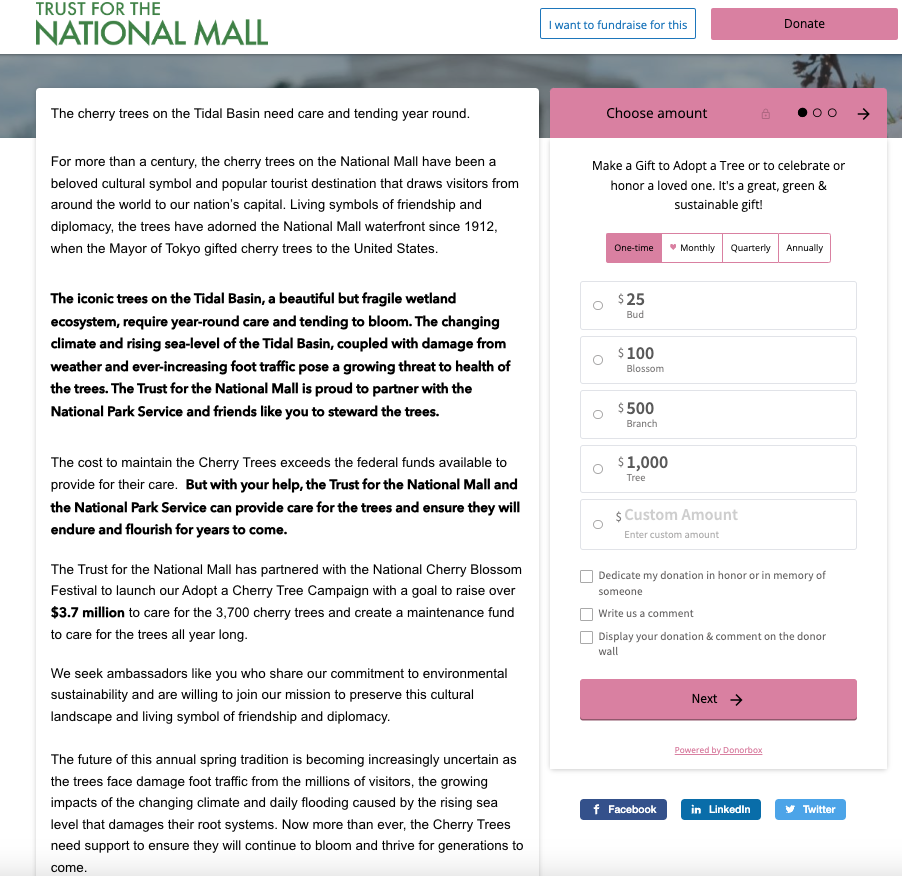Building a high-performing, successful nonprofit organization is never easy, especially in a world that continues to present new challenges.
Yet nonprofit organizations need to remain stable, relevant, and resilient in the face of up and down cycles of budget cuts and a changing fundraising landscape.
To truly succeed, a nonprofit needs to be financially stable with a passionate volunteer base and committed and strong leadership – among other things. But those are not the only things separating the nonprofits that are barely making it from nonprofits that are truly thriving.
If you’re starting or running a nonprofit, there are a number of positive traits you can adopt to help your organization succeed.
7 Main Characteristics Exhibited by Successful Nonprofit Organizations
1. They Are Agile
The origins of the term ‘agile’ come from a set of project management principles that were created by software developers in the 1990s.
Agile software development is based on iterative development, where requirements and solutions evolve through collaboration between self-organizing cross-functional teams.
The term is now used more broadly, including in the nonprofit world. Nowadays, successful nonprofits use some or all of the agile methodologies in their work.
These methodologies focus on frequent inspection and adaptation of strategies and activities (usually every two weeks). They also include a leadership philosophy that encourages teamwork and clearly defined short-term specific tasks.
Agile nonprofits focus on delivering results in self-managed teams. In those teams, the hierarchy is not as present as in traditional models of management. There is also a big focus on transparency and an emphasis on frequent, short conversations. Immediate feedback is preferred instead of long meetings.
If a nonprofit is to be successful today, it needs to continuously successfully face change and unexpected risks. The agile methodology can really help with learning and adapting fast. And organizations that are able to learn and adapt fast are the ones that are successful in today’s environment.
2. They Develop Diverse Funding Sources
A not-for-profit organization is not so different than a for-profit organization. Regardless of the fact that nonprofits focus on social change and not profit – if they are out of money they can’t exist.
This is why it’s very important for nonprofits to stay in check when it comes to their finances, alongside always having their mission on their mind.
There are many possible funding sources out there: individual donations (online and offline), grants, corporate sponsorships, membership fees, selling goods and services, in-kind donations, and more.
Having a robust, all-in-one fundraising platform helps ensure you always have diverse funding. Donorbox has features and tools to help you boost your fundraising so you’re never relying on only one avenue of funding. From ticket sales, crowdfunding, on-site giving with the Donorbox Live™ Kiosk app, and more, Donorbox makes it easy to diversify your contributed income.
Check out how Trust for the National Mall launched this Donorbox campaign specifically for their cherry trees, in addition to other ongoing campaigns and funding sources.

Get Started With Donorbox
3. They Are Focused On Their Mission, Always
An organization’s mission is its reason for existing, its purpose, and its future. A successful nonprofit always remains focused on the mission, in spite of the firefighting that almost all nonprofit organizations need to do on an almost daily basis.
A healthy nonprofit clearly articulates its mission into a mission statement and then shares it. The mission statement is shared alongside the vision and the values with employees at every level of the organization and all other relevant stakeholders.
The nonprofit management in successful nonprofits constantly shares goals with employees and gets them on board.
Employees and managers in such organizations understand what is required to reach these shared goals. They feel ownership over them and they take daily steps to accomplish them.
In addition to that, successful nonprofit organizations are those which create a mission-oriented culture. In mission-oriented organizational cultures, employees have a clear sense of purpose. They understand how their roles contribute to the bigger picture and to the immediate and long-term goals.
4. They Are Donor-Centric
Truly successful nonprofits are donor-centric. They understand that donors are more than their wallets – they are people. Until a nonprofit truly understands that its donors are a key part of the mission, it will always be hindered in its work.
But what does being donor-centric look like in action? Well, typically it means that nonprofits are all about communication and keeping their donors in the loop – aka, reaching out more often than just regular solicitations. It also includes actions like sharing an annual or impact report to show donors what their donations have accomplished.
Donorbox helps nonprofits center donors in every action. With strong donor management tools, communicating and making donors feel important doesn’t take a lot of extra effort – and can have a big payoff.
Donorbox features that help nonprofits become more donor-centric include –
- Robust donor profiles help you record important information about your donors like their employer, birthday, and other key info that will make your outreach more personalized.
- The ability to create a communication record for each donor lets you track exactly how often you’ve reached out. This also helps you follow up on any questions or concerns they had.
- Donor moments alert you for key donor events, like the anniversary of their first donation or if they have cancelled or changed their recurring donation. This helps you reach out at just the right time!
- Data is so important, and Donorbox makes it easy to sort your data by a variety of filters so you can properly segment your audience. Plus, pull customized reports using reporting templates to dive deeper into your data and get just what you need.

Get Donor Management Tools
5. They Are Able To Mobilize And Inspire Others
Successful nonprofits are able to mobilize and inspire their staff, their volunteers, and their donors. They constantly create meaningful ways to engage these individuals and connect them to the nonprofit’s mission and core values. They build and sustain strong communities.
While successful nonprofit organizations are really good at managing their internal operations and internal stakeholders, nonprofits that have the highest impact are the ones that are able to mobilize every sector of society — government, business, nonprofits, and the public.
In order to achieve that, an organization needs to work with others and through others, and not work in isolation. Working with other organizations and individuals in the community means that those nonprofits can create much more impact than they ever could on their own.
Nonprofit organizations that mobilize and inspire others are the ones that create social movements, advocate for real change, and create conversations. Through their work, they change the attitudes and behaviors of the public. In a way, they are externally rather than internally focused.
These nonprofit organizations understand that, in addition to providing high-quality programs and services to their beneficiaries, they need to advocate for change (usually by working with the government and starting grassroots movements).
6. They Are Digitally Savvy
Technology is transforming how nonprofit organizations work and how nonprofit professionals engage with donors and supporters across online platforms.
While in the past it might have been enough to have some sort of digital information management system and a website, successful nonprofits of today have integrated technology into much of their organization’s work.
Successful nonprofits are embracing tech in the following areas –
- Fundraising through powerful online and on-site fundraising options like a donation kiosk.
- Organizational tools like CRMs and donor management software.
- Volunteer logistics tools that streamline recruitment and engagement.
- Accounting software that makes fund accounting simple and efficient.
And more. Finding the right fundraising platform that integrates with all of these tools will streamline your workflow and help you keep all your key data organized. Luckily, Donorbox integrates with over 5,000 apps through Zapier and has dozens of native integrations with the tools nonprofits use every day. Learn more about Donorbox integrations here.

7. They Continuously Listen And Improve
Successful nonprofits continuously and consistently take time to listen. They listen to their beneficiaries, Board, staff, volunteers, donors, and other organizations.
Such organizations use a variety of innovative approaches to identify, share, and apply results and lessons learned from their programs and initiatives. They collect and learn from data to develop new or better programs that meet the evolving needs and requirements of their beneficiaries.
One of the ways to always listen and improve is to create a culture of feedback in your nonprofit. Fostering a culture of feedback is crucial to the success of every organization. Creating an open, feedback-oriented company culture requires people to be able to give and receive feedback about any aspect of organizational life. However, this feedback should be given and received clearly, productively, empathetically, and with sensitivity.
We have several resources to help nonprofits analyze their performance, like our SWOT Analysis worksheet and our Rose, Bud, and Thorn worksheet. Both are free to download!
It’s also important for nonprofits to bring enthusiasm, a passion for growth, and a willingness to take on the world’s largest social challenges.
Conclusion
The role of a nonprofit organization has always been to create social change and lead the way to a better world. And that in itself hasn’t changed.
However, today’s environment is vastly different from that of just a decade or two ago. So, nonprofit leaders must adapt and change with the times if they hope to deliver their missions.
While traditional measures of success still apply – things like financial viability, the number of donations or the number of beneficiaries served – the definition of success has started changing.
Likewise, what a successful, effective and high-performing nonprofit means is constantly changing.
The features above are only some of the indicators we’ve observed, and we hope you found the insights helpful.
Choose Donorbox as your donation system and check out our Nonprofit Blog for more nonprofit resources and tips. Subscribe to our monthly newsletter for fresh fundraising ideas delivered to your inbox every month!







